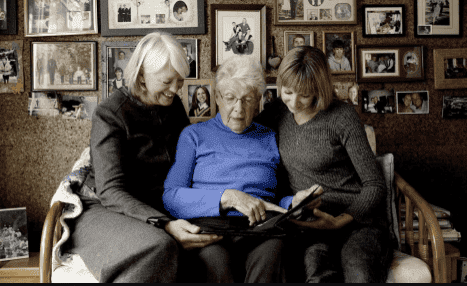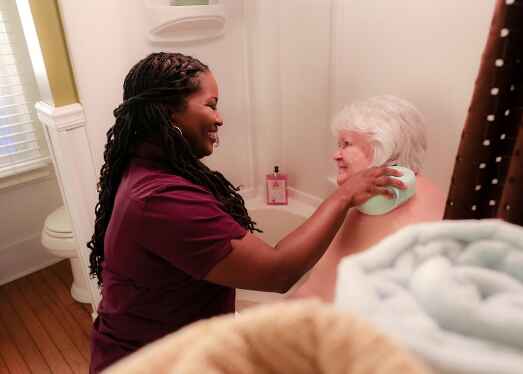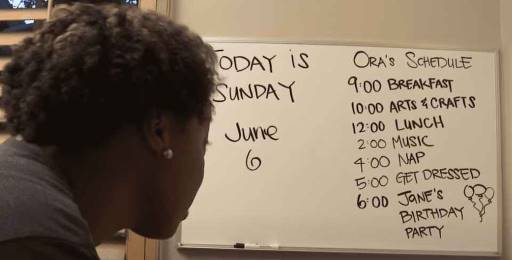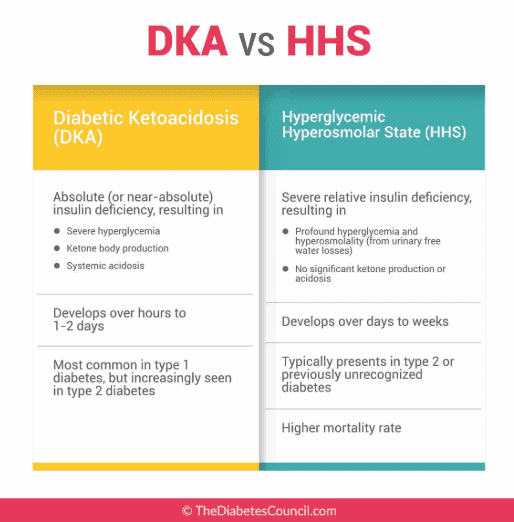
Caring for Elderly Parents with Dementia Who Refuse Help
Navigating the challenges of caring for an elderly parent with dementia can be tough, especially when they resist help. This guide offers practical advice and compassionate strategies to support your loved one while respecting their autonomy and dignity.

Understanding Dementia Medication Side Effects: A Guide for Families
Discover the potential side effects of dementia medications and how to support your loved one. Stay informed!

The Importance of Routines and Consistency for Patients with Dementia
Maintaining routines and consistency can significantly improve the overall well-being and quality of life of a loved one with dementia. As a caregiver, understanding the value of routines and how they can positively impact your loved one’s journey through dementia is crucial. In this article, we’ll explore why routines matter, how to establish them, and their benefits to patients and caregivers.

Encouraging Dementia Patients to Take a Bath or Shower: 3 Gentle Methods
Discover gentle methods to encourage dementia patients to bathe. Learn how to create a positive bathing experience, use distraction techniques, and maintain a consistent routine. These compassionate approaches help caregivers navigate hygiene challenges while preserving dignity and reducing stress for both patient and caregiver.

Doctors Ignoring Family Concerns in Dementia Care
Welcome to our discussion on a topic close to many hearts: the care of our loved ones with dementia. When a family member is diagnosed with dementia, it feels like a part of them slowly fades away. But as they lose parts of themselves, your role in their life becomes even more crucial. This article isn’t just words on a page; it’s a beacon of hope and understanding, shining a light on why your voice, as a family member, is vital in the care of your loved one.

Understanding Repetitive Questions of Dementia Patients
When caring for a loved one with dementia, it’s important to approach their needs with empathy and understanding. Dementia is a progressive condition that affects memory, thinking, and communication. As a caregiver or family member, it’s crucial to adapt your communication style and strategies to best support your loved one. This article will guide you through the stages of dementia, address common symptoms like anxiety and agitation, provide techniques to reduce caregiver burnout, create a calm environment, and effectively respond to repetitive questions.

Optimizing Hospice Respite Care: A Comprehensive Guide for Families
Caring for a loved one who has a terminal illness can be extremely rewarding but also particularly challenging. You may feel exhausted, overwhelmed, or isolated by the demands of caregiving. You may also feel guilty or anxious about taking a break from your loved one. But you deserve time to rest, recharge, and care for yourself. That is why hospice respite care can be a great option for you and your loved one.
Hospice respite care is a service that allows you to temporarily place your loved one in a facility, such as a hospital, nursing home, or hospice house, where they can receive professional care and support. You can use this time to do whatever you need or want, such as sleeping, working, running errands, visiting friends, or enjoying a hobby. Respite care can last up to five days at a time.

Review of Gone from My Sight by Barbara Karnes, RN
As an experienced hospice nurse with years of experience, I have come across numerous resources that aim to guide families and caregivers through the process of dying. One such resource that stands out is “Gone from my sight: The Dying Experience” by Barbara Karnes, RN. This booklet, often referred to as the “Little Blue Book,” has been a staple for hospice providers for over three decades, and for good reason.

Nourishing with Care: Feeding a Terminally Ill Loved One
Discover compassionate approaches to nourishing terminally ill loved ones. Learn about appetite changes, feeding techniques, and the importance of emotional support during meals. This guide offers practical tips for caregivers to ensure comfort and dignity while addressing nutritional needs in end-of-life care.

Managing Diabetic Ketoacidosis and Hyperosmolar Hyperglycemic State at End of Life: A Comfort-Based Approach
As an experienced hospice nurse, I understand that managing diabetic ketoacidosis (DKA) and hyperosmolar hyperglycemic state (HHS) at end of life can be challenging, especially when patients choose to stop taking their diabetic medications or when those medications are no longer an option. In this article, I will provide information on recognizing the signs and symptoms of hyperglycemic crises and outline comfort-based treatment options that align with hospice goals of care.

Traveling While on Hospice: Making the Most of Precious Moments Together
Discover how hospice patients can safely travel and create lasting memories with loved ones. Learn about essential preparations, medical considerations, and tips for a smooth journey. Explore ways to make the most of precious moments together while ensuring comfort and care during travel.

Caring for a Loved One with Dementia: Encouraging Medication Compliance
Caring for a loved one with dementia can be challenging. One common struggle caregivers face is ensuring their loved one takes their medications. Dementia can make understanding and remembering medications difficult. In this guide, we’ll explore effective strategies for encouraging your loved ones with dementia to take their medications, considering their unique needs.
